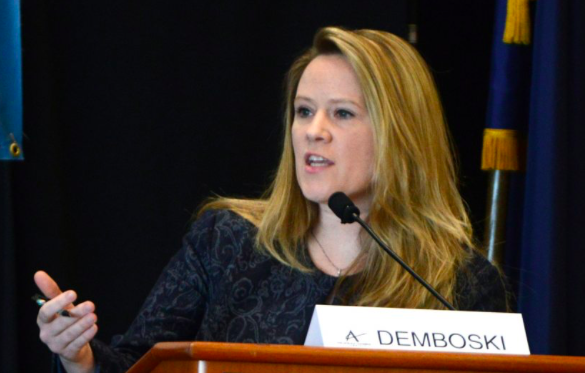By TIM BARTO
Transgenderism is now at the forefront of the nation’s consciousness, or at least it’s in the forefront of the nation’s news cycle.
Perhaps more appropriately, it’s at the forefront of a movement by the radical left to overthrow the foundational mores of our country and western civilization as a whole.
Many of us have quit using phrases such as “How much worse can it get?” or “Now I’ve heard it all,” because the responses we keep getting back are, respectively, “Much worse,” and “No you haven’t.”
Like the old baseball adage that you should not speak out loud about a pitcher throwing a no-hitter, expressing thoughts that we’ve reached the limits of bizarreness may bring about the automatic jinx of the next opposing batter getting a base hit. In the case of our changing mores, it’s the next heretofore unbelievable action by the transgender movement.
Consider the recent story of the Los Angeles Dodgers baseball organization inviting, uninviting, then re-inviting the Sisters of Perpetual Indulgence to the team’s LGBTQ+ Pride event.
Setting aside the very valid argument that Major League Baseball should be about promoting the game of baseball instead of alienating their historical fanbase and making it uncomfortable for most parents to take their children to see a ballgame, the Dodgers’ front office felt such immense pressure from the rainbow mob that they not only re-invited but apologized to a group that mocks not just Catholic nuns but all of Christianity.
At first glance, it may seem that the Dodgers did not learn from the horrendous public relations mistakes made by Anheuser-Busch when its Bud Light marketing team openly endorsed biological-male-turned-teenage-girl-impersonator Dylan Mulvaney.
However, maybe the Dodgers did learn something. The Anheuser-Busch/Bud Light (AB/BL) folks realized they insulted their consumer base – essentially, sports-watching men from middle America, whom they could justifiably expect would soon abandon their boycott, just as they did with Nike and the National Football League.
An acknowledgment by AB/BL of the mistake would likely have satiated a crowd that essentially just wants an inexpensive light beer without any attached social statements or alternative lifestyles messaging.
But the AB/BL team also realized that such an apology would generate an alternate firestorm from the transgender crowd, and that would be an even greater fiasco.
Why? Because the alphabet appropriator base is unashamed and unabashed. They are convinced their side is correct, and any deviation from their point of view amounts to intolerable intolerance. It’s an angry, misguided bunch, but they are extraordinarily passionate about their positions: transwomen are women; gender is a social construct; young children can determine if they are a boy or girl; sex transition surgery is a right that should be paid for by the collective taxpayers; drag queen story hour is harmless fun.
Just a few short years ago, these positions would have been deemed so outrageous they would not have received any serious dialogue or debate, but times have changed, and done so at an incredibly fast pace.
President Bill Clinton signed the Defense of Marriage Act in 1996. Hillary Clinton spoke out against gay marriage, as did President Obama, although they’ve both changed their positions (“evolved,” they called them) in the 2012-2014 time period.
Feminists argued for and staunchly defended Title IX, the federal law that insured equal opportunity for girls and women to compete in sports, but today many feminists are supporting the inclusion of biological males in female sports competitions.
On a more local level, during the recently ended 2023 legislative session, the testimonials against Gov. Mike Dunleavy’s parental rights legislation (SB96) and for Senator Gray-Jackson’s sex education bill (SB43) included far more people from the alternative lifestyle crowd than the traditional majority.
The fanaticism of the LGBT+ movement, and the transgender part of that in particular, is fueled by support from the teachers’ unions, public school systems, government institutions, major media outlets, and the entertainment industry:
- Sports network ESPN honored biological male swimmer Lia Thomas during Women’s History Month for Thomas’ participation as a female college swimmer
- President Biden appointed biological male Rachel Levine to the rank of four-star Admiral in the Public Health Service. USA Today went on to honor Levine as one of their Women of the Year
- Sam Brinton, a dress-stealing-and-wearing biological male, was appointed by President Biden as a Deputy Assistant Secretary in the Department of Energy
- The state of Michigan honored transgender male Owen Bondono as its Teacher of the Year in 2020
- Time magazine selected transgender actor Michaela Jae Rodriguez as one of its Women of the Year in 2022
- Sports Illustrated magazine selected transgender singer Kim Petras, a biological male, as one of their cover models for their 2023 swimsuit edition.
So, is the transgender movement a phase that will go the way of Occupy Wall Street and BLM? Does it have legs enough that 20 years from now we will look upon it as just another transition that changed society forever, or will the pendulum begin to swing in the other direction?
Tim Barto is a biological male who has been married to the same woman for 33 years. Together they have five children. He’s also vice president of Alaska Family Council, and he is unable to answer the two questions that ended this column.









